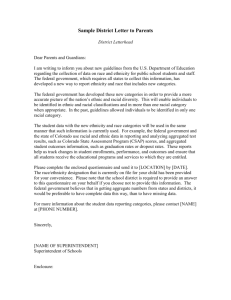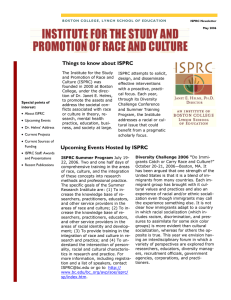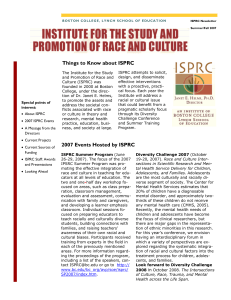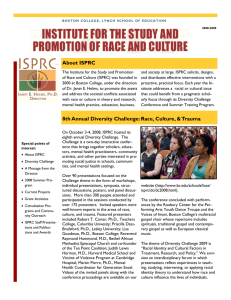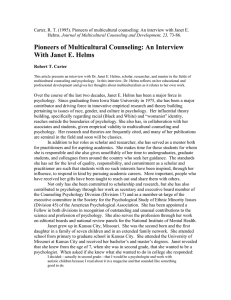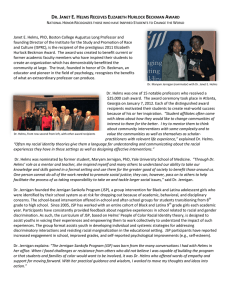Week4IntelTeamJASResourcesx
advertisement
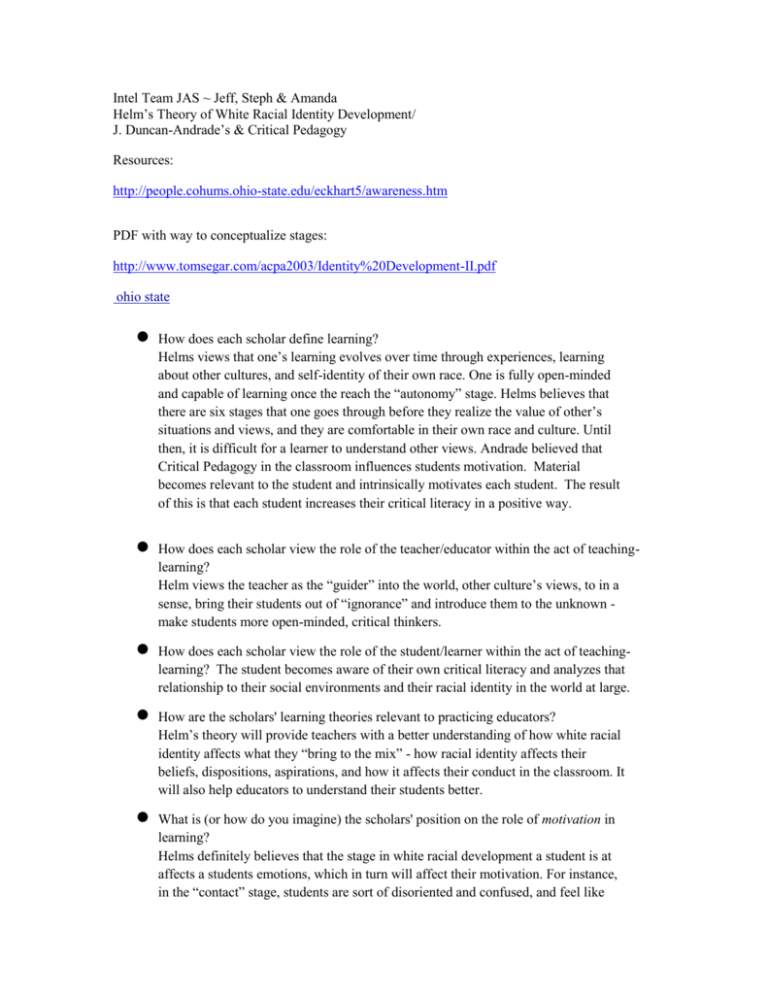
Intel Team JAS ~ Jeff, Steph & Amanda Helm’s Theory of White Racial Identity Development/ J. Duncan-Andrade’s & Critical Pedagogy Resources: http://people.cohums.ohio-state.edu/eckhart5/awareness.htm PDF with way to conceptualize stages: http://www.tomsegar.com/acpa2003/Identity%20Development-II.pdf ohio state ● ● ● ● ● How does each scholar define learning? Helms views that one’s learning evolves over time through experiences, learning about other cultures, and self-identity of their own race. One is fully open-minded and capable of learning once the reach the “autonomy” stage. Helms believes that there are six stages that one goes through before they realize the value of other’s situations and views, and they are comfortable in their own race and culture. Until then, it is difficult for a learner to understand other views. Andrade believed that Critical Pedagogy in the classroom influences students motivation. Material becomes relevant to the student and intrinsically motivates each student. The result of this is that each student increases their critical literacy in a positive way. How does each scholar view the role of the teacher/educator within the act of teachinglearning? Helm views the teacher as the “guider” into the world, other culture’s views, to in a sense, bring their students out of “ignorance” and introduce them to the unknown make students more open-minded, critical thinkers. How does each scholar view the role of the student/learner within the act of teachinglearning? The student becomes aware of their own critical literacy and analyzes that relationship to their social environments and their racial identity in the world at large. How are the scholars' learning theories relevant to practicing educators? Helm’s theory will provide teachers with a better understanding of how white racial identity affects what they “bring to the mix” - how racial identity affects their beliefs, dispositions, aspirations, and how it affects their conduct in the classroom. It will also help educators to understand their students better. What is (or how do you imagine) the scholars' position on the role of motivation in learning? Helms definitely believes that the stage in white racial development a student is at affects a students emotions, which in turn will affect their motivation. For instance, in the “contact” stage, students are sort of disoriented and confused, and feel like they never knew their place in the world. In the disintegration/reintegration stage, a person feels confused, or maybe angry. All of these emotions will influence a student’s level of comfort and motivation in the classroom. Once one reaches the autonomy stage, where they are completely comfortable, is probably when Helm would say a student would be truly motivated. ● ● What is (or how do you imagine) the scholars' position on the role of the affective domain in learning? As students become aware of other cultures and racial identity perspectives their literacy develops in a way that is mutually beneficial for the classroom and society as a whole. The social justice movement to stop racism in classrooms will affect students when they become functioning members of society. What is (or how do you imagine) the scholars' position on the influences of what students bring to the mix on learning? Students bring their cultural and racial identities to the mix along with interests, but if the teacher successfully bridges the understanding between identities and social environments students will become socially aware and critically literate.



